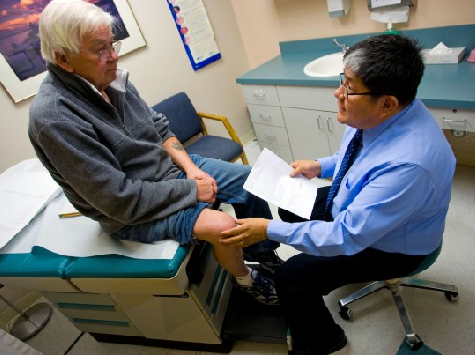
“Obamacare doesn’t need to be fixed, it needs to be scrapped,” says Jan Iverson, wife of San Diego private practice physician Dr. Wayne Iverson.
Iverson spoke with Breitbart California in a phone interview, in which she relayed many of the destructive policies that have plagued the business of small private medical practices like Dr. Iverson’s. “Insurance payments have gone down every year, while costs of business have gone up” said Iverson. Those business costs are not only for supplies but increased costs for personnel needed to keep up with all the new regulations.
The Union-Tribune reported on local San Diego physician Dr. Doug Moir, who also faces great operating and financial pressures under Obamacare. The article states, “According to Medicare’s database, Doug’s average payment in 2012 was $52.70 for a Doppler echocardiogram… In 2011, the national average was $86.64.” The test lasts anywhere from 20 minutes to one hour. Dr. Moir’s practice had one bill that took four years to process through Medi-Cal and arrived for $61.72, not the $450 that was originally billed. Dr. Moir’s federal “quality bonus” has produced checks in the amounts of 9 cents and $2.14.
According to Iverson, certain medical procedure codes will be bundled and put into a whole new code. The physician will then be paid a separately-determined amount, usually a great deal less.
Dr. Iverson’s practice has chosen not to move to new federal electronic health record software that others have. However, this choice does not come without a cost; now claims submitted by Iverson’s office, and other practices that choose not to switch, are docked 2% for not using the new software. Despite the loss in payment for services rendered, Iverson’s practice is avoiding some of the costs and delays that come with glitches in the new federal software.
According to Iverson, the cost for purchasing, implementing, and training staff for the new federal software can run $40,000 with additional yearly maintenance costs thereafter.
The new software is not designed to integrate with other systems used by medical practices. According to Iverson, the new software does not add any value to patients, particularly given that it does not integrate with other patient systems.
You may have heard of the new vastly complicated medical coding systems known as ICD-10. While at the moment ICD-10 implementation is delayed until October 2015, once implemented, its highly specific medical description codes will provide significant detail in regards to patient activities that lead to injuries and illness.
Further, the move to electronic records has been criticized for its vulnerability to hackers looking to gather not only medical but patient personal information. This information can be used by hackers to obtain access to patient financial information and provides the opportunity and means to perpetuate financial fraud. Iverson specifically pointed out the increased vulnerability of records that are moved to a cloud system of record storage.
There are reports that a number of doctors are moving toward concierge practices. When Iverson was asked if this is something she has seen happening in San Diego, she responded, “I have seen three doctors go to concierge because they can’t afford to be in practice.” She then added that more than moving to concierge, many doctors are picking up and leaving for states like Texas or simply retiring.
Iverson spoke of the benefits of patients paying for medical needs upfront, saying, “When you pay cash for something, the doctor can actually charge less because of the decrease in paperwork.” Americans choosing to forgo traditional insurance may yet decide to participate in health care alternatives. Breitbart’s Dr. Susan Berry reported on the many options to opt out of Obamacare. Some medical providers offer discounts, some even 40%, for paying upfront.
As Obamacare continues to plague America, questions are being raised as to how many enrollees have even paid their first month’s premium and thus completed the enrollment process. A report from the U.S. House of Representatives Energy and Commerce Committee states, as of April 15, 2014, only 67% of Obamacare enrollees had paid their first month’s premium.

COMMENTS
Please let us know if you're having issues with commenting.